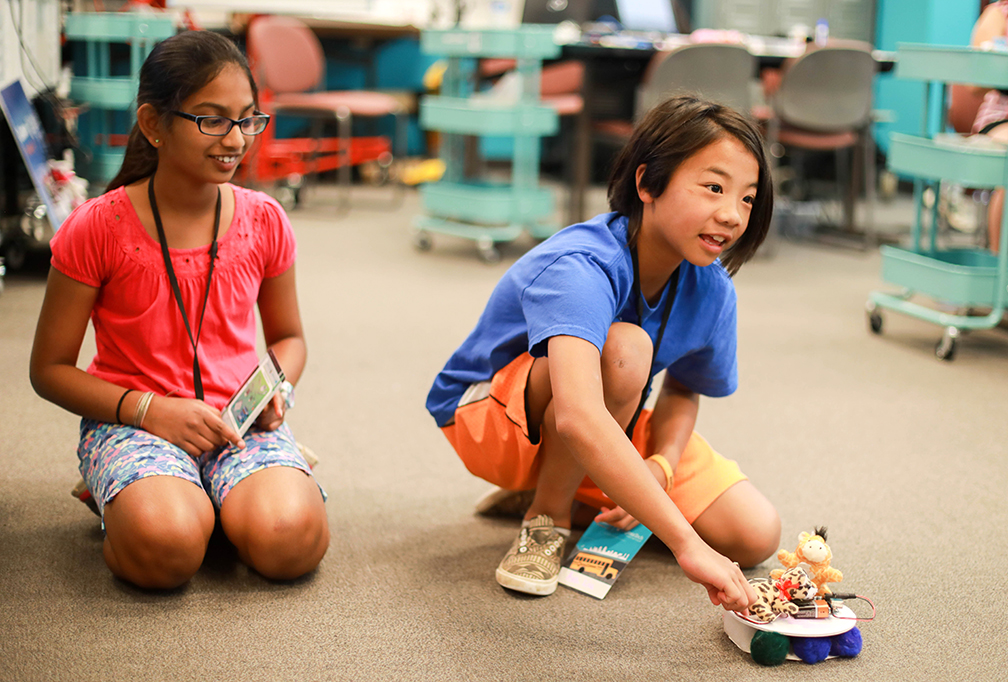Imagination in Action
September 5, 2016

From animated sock monkeys to top hats with their own planetary systems, Virginia Tech’s presence in Northern Virginia just became a lot more fun.
In the fall of 2016, the university joined with computer chip manufacturer Qualcomm in launching Thinkabit at Virginia Tech, a multiyear collaboration aimed at introducing middle schoolers to the wonders of science and engineering through robocrafting.
The Thinkabit Lab experience offers both students and teachers an engaging learning environment — equal parts makerspace, classroom, and mad-scientist laboratory — to foster creativity, collaboration, and the critical skills necessary for the 21st century.
The new lab — Qualcomm’s first Thinkabit venture outside of San Diego — is led by Virginia Tech’s School of Education in the College of Liberal Arts and Human Sciences and Department of Engineering Education in the College of Engineering. Jim Egenrieder, who earned his master’s degree and doctorate from the School of Education, now directs the lab.
Thinkabit at Virginia Tech focuses on underserved students; students underrepresented in careers in STEM fields; and teachers in the metro Washington, DC, area. For some students, the Thinkabit Lab will offer an introduction to hands-on STEM learning and real-world careers.
“We know that STEM skills can enhance every student’s future, regardless of their field of study, and we need to prepare both students and teachers to address the complex challenges of tomorrow,” says Tim Sands, president of Virginia Tech. “The Thinkabit collaboration with Qualcomm will allow us to join complementary strengths and work synergistically to create opportunities and lower barriers.”
The lab also leverages Virginia Tech’s academic depth in both education and engineering to train teachers to develop innovative STEM experiences in schools and community programs.
“We want to create an environment that encourages what’s called embodied learning — learning and doing as integrated activities,” says Elizabeth Spiller, dean of the College of Liberal Arts and Human Sciences. “We’re focused on creativity and innovation, introducing to an array of disciplines the applied learning that’s integral to engineering. We want to give teachers a perspective shift, to inspire them to teach more creatively. Our goal is nothing short of changing the way kids learn in classrooms throughout the region.”
Written by Paula Byron





